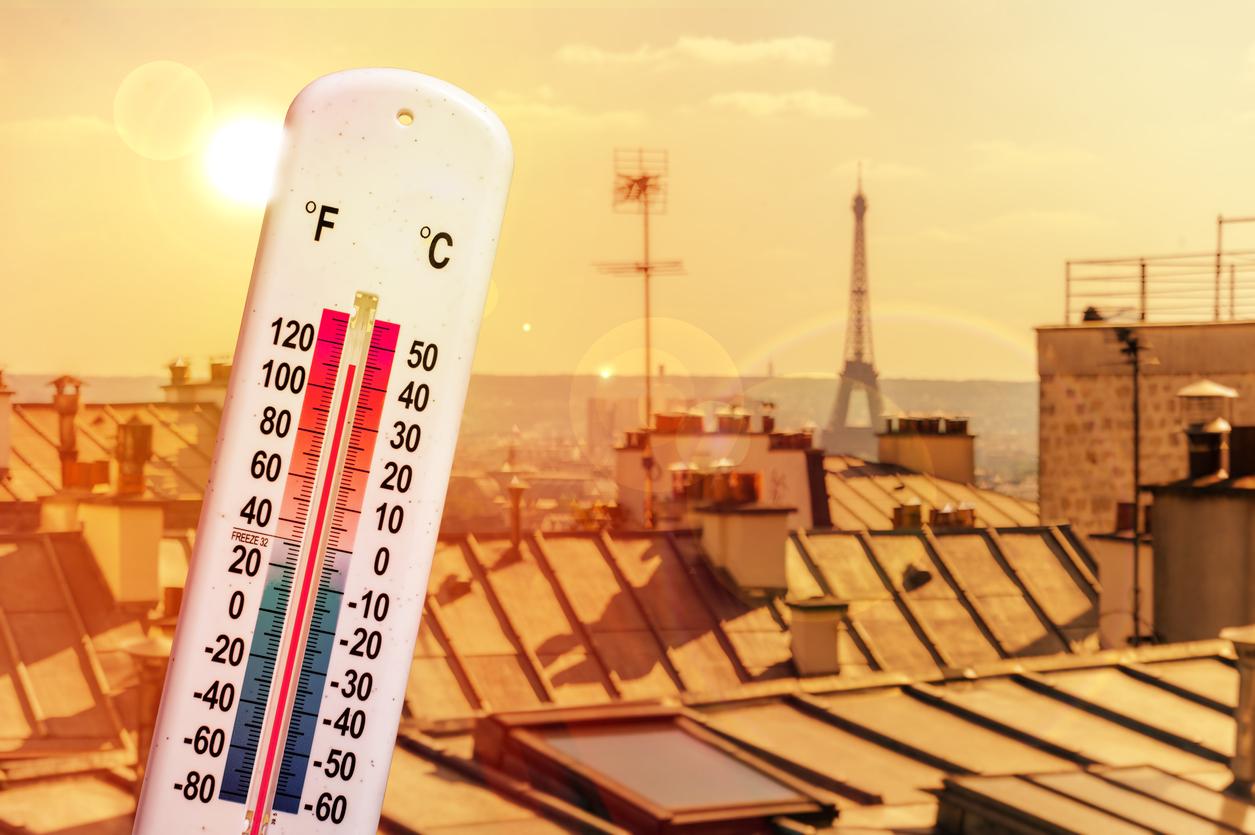To stem the spike in cases of monkey pox In France (2,601 confirmed cases identified as of August 9 including 885 cases in Ile-de-France, 192 in Auvergne-Rhône-Alpes and 230 in Occitanie), the vaccination campaign is accelerating. After’opening of a “vaccinodrome” in Paris on July 26, the authorities decided to launch experimentation with vaccination in pharmacies. Five pharmacies are concerned on the territory, in Ile-de-France, in Hauts-de-France and in Provence-Alpes-Côte d’Azur. “We are seeing with the pharmacists who have volunteered (…) if this is feasible in pharmacies, respecting the delivery chain of this vaccine, which is something a little more complicated than the Covid vaccine”commented the Minister of Health François Braun at the microphone of RTL.
The long-term objective is to vaccinate as much as possible the population concerned, estimated at 250,000 people according to the High Authority for Health (HAS). “There are enough vaccines for the target populationthe”, wanted to reassure the Minister of Health, despite some voices rising against the lack of niche to receive a dose. “Doctolib is not the solution for everythingsaid François Braun. Many vaccination centers do not use it, as they also do anonymous screening for other diseases.”
Monkey pox: who should get vaccinated?
After a first opinion issued last May, which recommended the implementation of a so-called “reactive” vaccine strategy, that is to say not in prevention, but only when the person has been in contact with an infected person and when this contact is considered “at risk”, HAS has updated the vaccination strategy against Monkeypox due to the increasing number of infections. Since July 8the High Authority for Health therefore recommends preventive vaccination of people at risk of exposure to the virus. It is primarily:
- Men who have sex with men (MSM) and trans people reporting multiple sexual partners;
- People in a situation of prostitution;
- Professionals in places of sexual consumption, whatever the status of these places.
#Communicated | HAS updates the vaccine strategy against #Monkeypox and recommends, in addition to post-exposure vaccination around a confirmed case, preventive vaccination of the most exposed people https://t.co/EMy9WtubPA
| @SantePublicFr@Sante_Gouvpic.twitter.com/TV3Osfcvhu
– High Authority for Health (@HAS_sante) July 8, 2022
However, at this stage the HAS do not recommend pre-exposure vaccination of healthcare professionals who take care of sick people, “the usual hygiene measures and the wearing of personal protective equipment making the risk of contamination very low in practice“, she explains. But this exposure may be considered on a case-by-case basis, depending on the exposure, the existence of individual risk factors or at their request.
In Paris, a “vaccinodrome” solely dedicated to monkeypox
At the beginning of July, the multiplication of cases of monkey pox (or Monkeypox) in the Ile-de-France region had prompted the Regional Health Agency to transform the 7 Parisian screening centers into real vaccination centers, then to open centers additional vaccinations in Hauts-de-Seine, Val-de-Marne and Seine-Saint-Denis.
Tuesday July 26, a vaccination center dedicated exclusively to monkey pox opened its doors in the 13th arrondissement (44 Rue Charles Moureu). The Edison Health Center will be open Monday to Friday from 9 a.m. to 6 p.m. and Saturday morning from 9 a.m. to 1 p.m. appointments are made via Doctolib.
In total, 26 vaccination centers will be able to accommodate people at risk in Ile-de-France. But beware: only certain days and time slots are reserved for vaccination against monkeypox. The persons concerned must therefore make an appointment before going to the hospital or center concerned. The list of Ile-de-France vaccination centers (as well as their telephone numbers) is regularly updated on thee site of the Regional Health Agency.
Monkey pox: which vaccine and how many doses?
There is no specific vaccine against monkeypox, but the human smallpox vaccine is 85% effective against this orthopoxvirus infection, as emphasizes the Institut Pasteur. The HAS therefore recommends administering a 3rd generation smallpox vaccine marketed in France under the name Imvanex®, which is better tolerated than the 1st and 2nd generation vaccines.
The vaccine is administered in two doses (or three doses in immunocompromised people), 28 days apart. People who were vaccinated against smallpox before 1984 may request a single booster dose. The first antibodies appear after one week and we can a priori consider that there is protection against the virus after two weeks, in a significant proportion of vaccinated people.
This proportion is even greater after the second dose, thus reaching 80 to 85% protection.
>> What are the side effects? Like all vaccines, some symptoms may appear within hours of vaccination. According to Government of Quebec websitethe most common effects, which affect 10% of vaccinated people, are:
- Pain, redness, swelling, hardness, itching at the injection site
- Nausea
- Headache, tiredness
- Muscle aches.
Monkey pox: how to know if you are a contact at risk?
Monkeypox is suspected when you have had possible exposure to the virus in the previous 3 weeks through:
- High-risk contact with a confirmed or probable case in France, or a confirmed case in another country
- Return from a trip to an African country where the virus usually circulates (Nigeria, Congo Basin-DRC) and contact with rodents or monkeys (dead or alive), bushmeat consumption
- Multiple or anonymous sexual partners, regardless of sexual orientation
- Man having sex with men
>> Vaccination after risky contact: the vaccine should be administered ideally within 4 days of risky contact and a maximum of 14 days later.
What if you have already been vaccinated against smallpox?
Smallpox vaccines were compulsory in France until 1979 (1983 for boosters). The World Health Organization (WHO) having declared the eradication of smallpox in 1980, the compulsory vaccination was then stopped. And, as the Institut Pasteur explains, it is precisely because vaccination stopped that immunity continued to decline, leaving the current population vulnerable to a monkeypox pandemic.
Several studies referenced in the HAS opinion have demonstrated the persistence of the immune response in individuals vaccinated against human smallpox in their childhood and 3 clinical trials have also shown that the administration of a dose of Imvanex® in a person who has previously received a primary vaccination with another type of smallpox vaccine confers a booster effect, even very far from this primary vaccination. The HAS therefore recommends the administration of a single dose of the Imvanex vaccine® for at-risk contact persons who received smallpox vaccination with a 1st generation vaccine before 1980.
>> In the particular case where the contact persons at risk are immunocompromised patients“previous vaccination with another smallpox vaccine does not modify the vaccination schedule initially recommended in this population, i.e. 3 doses of Imvanex®” emphasizes the HAS.
Should children be vaccinated?
So far, only one case in a child less than 10 years old was registered in France. However, theDuring the epidemic which affected the United States in 2003, among the 35 laboratory-confirmed cases, 11 were children aged 6 to 18, of whom 2 developed a severe form of the disease. The HAS has also looked into the possibility of vaccinating children.
She suggests that the reactive vaccination of children under 18 exposed and possibly more likely to develop severe forms of the disease, especially the most fragile and immunocompromised. either “considered on a case-by-case basis, by specialists alone and after a strict assessment of the benefits and risks for the minor concerned, within the framework of a shared medical decision, and with the consent of the parents (or the legal guardian of the child), and of the adolescent where applicable”.
It also recommends speeding up the conduct of clinical trials in the pediatric population in order to assess the efficacy and safety of third-generation smallpox vaccines.
Are there vaccine stocks? Even though vaccination against smallpox ceased in the early 1980s, France kept stocks of the vaccine to respond to the possible reappearance of new cases, or even a new epidemic.
HAS will adapt this preliminary recommendation according to the new epidemiological and clinical data available. It also indicates that the proposed vaccination strategy is part of a more comprehensive management strategy including in particular the provision of antiviral treatments not evaluated by HAS but having a Marketing Authorization in the indication of Monkeypoxin particular for eligible children, for whom the 3rd generation vaccine does not currently benefit from MA.


















